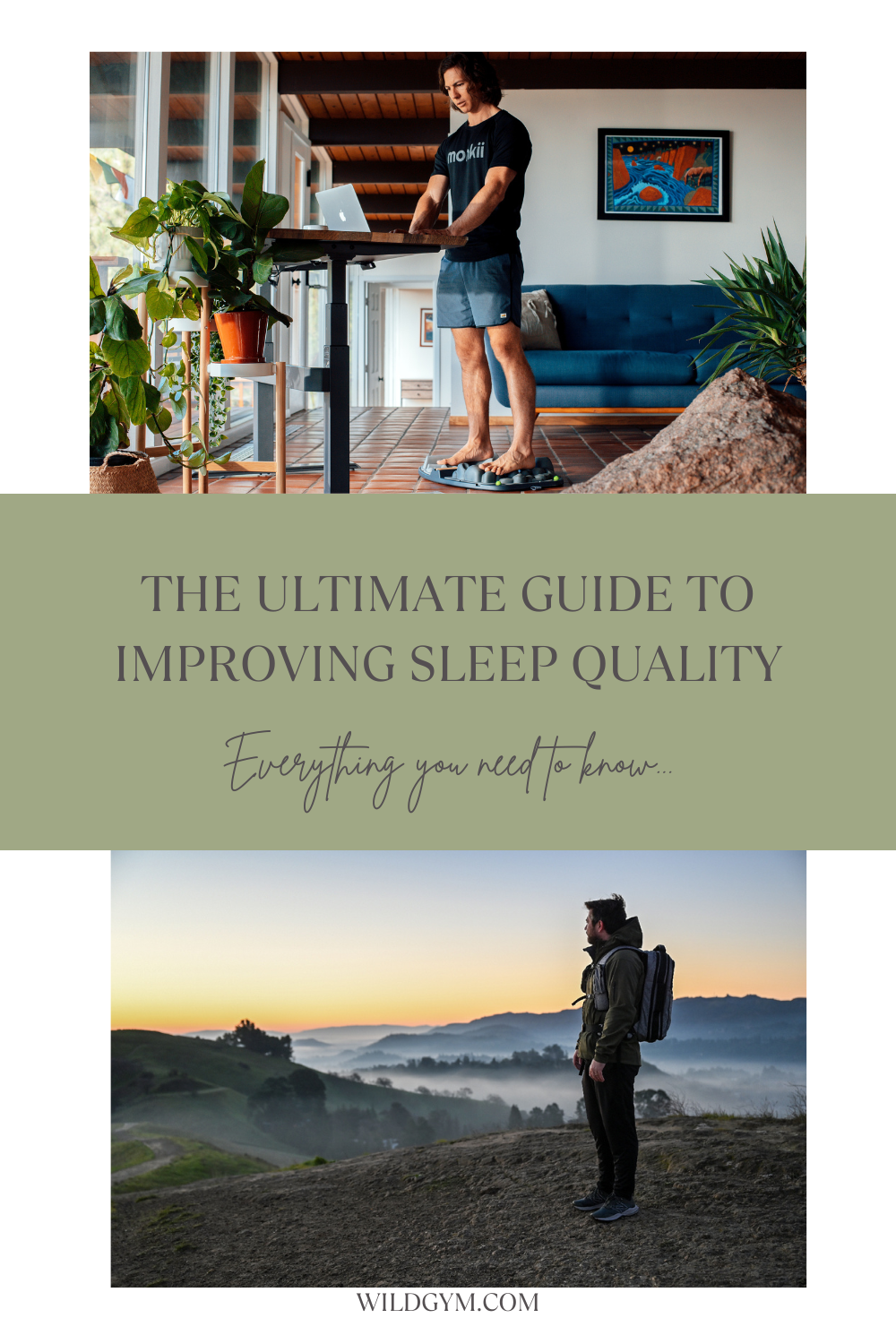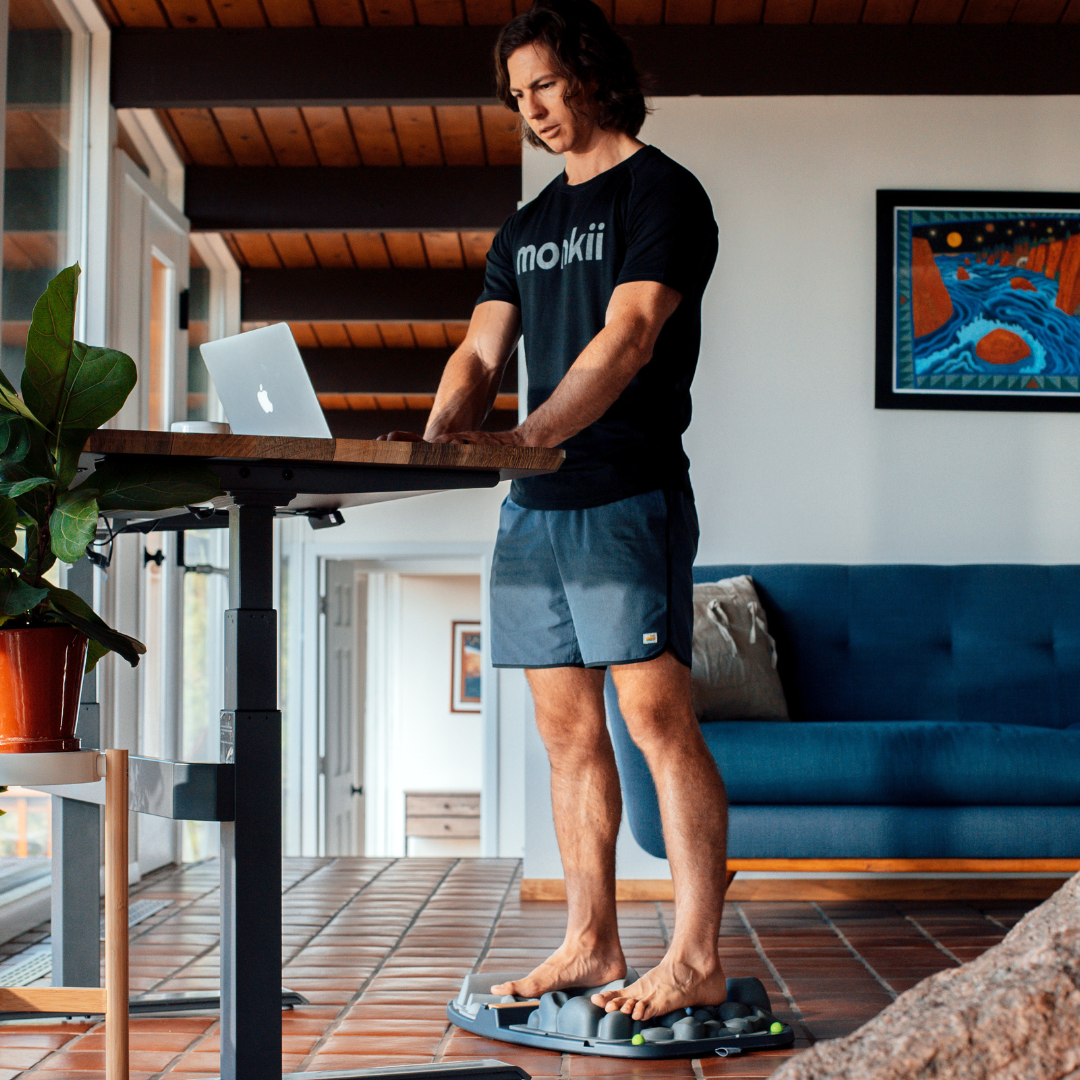Hello, League of Wildness!
Kim here with a topic that has become a major game-changer in my life. My two major passions in life are nature and optimal health. I strive to live in balance with the wild world as much as possible, paying attention to the cycles of the seasons as well as the light and dark cycles of each day and how they impact me. This results in my making better choices in the pursuit of optimal health, but for many years one factor was ignored: sleep.
A bit about me
I love data, and I track almost every stat related to my health that I can think of. I also track natural patterns of things like the weather and the growth patterns of harvestable wild plants and mushrooms. I maintain an Excel spreadsheet where I track my daily habits, calories, workouts, weight, and a few other things. Not because I have to, but because I enjoy it. I have been fascinated by the intricacies of the human body and the potential it has to surpass limits since I was a kid. When my third-grade classmates were fighting over “Scary Stories to Tell in the Dark” at the school library, I was reading “Junior Body Machine” to learn how knee joints function. When other girls were dressing in fluorescent spandex and going to aerobics, my sister and I were having pull-up contests in our basement. We were racing – and beating – the neighborhood boys in BMX and climbing a 30-foot rope to get into the tree fort we built. I wasn’t interested in doing what everyone else was doing. I was interested in doing *more* than they were doing because I knew more was possible. I wanted to leverage everything I could to truly know my potential. I also knew that for me, understanding how my health connects to the cycles of nature was an additional advantage point.
For many years, I was focused solely on fitness and nutrition. Until the internet became mainstream, information wasn’t always easy to find. I read a lot of books about strength training, nutrition, anatomy, and movement. I also read about the immune system, chronic disease, and aging.
Years later when our two-year-old son was diagnosed with type 1 diabetes, I spent months learning about the impacts of insulin and blood sugar and the hormonal body processes that are influenced by both. I learned about the huge impact protein and fat have on blood sugar spikes. I realized that while we had an excellent medical team, we were largely on our own to dig into the depths of diabetes management if we wanted to do better than their low benchmarks. We didn’t want to just reduce his risk of complications, we wanted to do everything we could to eliminate them. The medical world caters to the lowest common denominator and that wasn’t our plan to help our son navigate his new world. We wanted to give him the most recent information and the best tools so he never felt limited by diabetes. We had to find that information for ourselves from books and from other diabetics who have learned how to “hack” technology and their bodies to maintain blood sugar levels in normal ranges, which was unheard of just ten years ago.
Yet, through all the years of learning about how the human body functions I never considered the impact of something we spend 30% of our lives doing – sleeping. No one discussed the importance of getting enough sleep, never mind the quality of that sleep. Doctors didn’t bring it up at appointments, either. In one of my college classes, we read a book called “Lights Out: Sugar, Sleep, and Survival” by T.S. Wiley which was my first glimpse into the importance of sleep. It was a mind-blowing consideration for me, but no one else was really talking about it and the book wasn’t very highly rated so I wasn’t sure how accurate it was. I knew my best sleep came when I was camping where I went to bed at nightfall and woke up with the sun. The information in that book backed up my early suspicions about the connection between human sleep and the light and dark cycles of the planet.
There is a lot of information out there about how much we should sleep, but not as much focus on what quality sleep looks like. As I am just a hobbyist I can only share what I have learned about myself. I wear my Apple Watch to bed and use the AutoSleep app to track my sleep phases and heart rate. I don’t expect it is 100% accurate, but it gives me information to work with to make comparisons. For me, there are three major factors that have proven to ensure better sleep and thus better performance not just in my workouts but in life: circadian rhythms, alcohol intake, and bedroom temperature.
Circadian Rhythms
After eons of living out in the natural world like our still-wild brethren, our bodies remain attuned to the cycles of the planet. We produce melatonin when it starts to get dark to encourage us to get to bed on time. Melatonin peaks in the middle of the night and then decreases as dawn approaches. Our modern lives offer a lot of benefits, but they also complicate matters when our bodies believe they are still living out in the wilderness. We tend to expose our bodies to too much light at a time we should be winding down towards rest. Particularly blue light, which is emitted by the devices we’re so attached to every day – cell phones, tablets, TVs, laptops.
Alcohol
I am not a big drinker, but my in-laws make some amazingly tasty wine, and I do enjoy a good bourbon. However, even two drinks early in the evening disrupt my sleep for hours. On a normal night, my heart rate averages 61-62. If I have two glasses of wine with dinner, even if I drink a lot of water for the rest of the night, my heart rate averages 75. My sleep data shows less overall sleep time and non-existent deep sleep. I toss and turn all night and that restlessness also shows in my sleep data. This usually results in me waking up sore from my workout the day before and having limited energy for the next workout. It also means that I struggle with craving junk I rarely eat, like Flaming Hot Cheetos and syrupy coffee drinks. I have a hard time dragging myself into my workouts and even getting mentally organized for work. For me, wine is the worst offender – even one glass impacts my sleep. The quality of the wine does make a difference, cheap wines are more likely to cause a problem, most likely due to additives. I can enjoy bourbon and see little impact. It’s been fascinating to observe. It makes it easy to say no to a drink when I know tomorrow is leg day and I can’t afford to miss out on sleep. Or when I have a project to do at work that needs me to be on top of my mental game. Avoiding, limiting, or at least timing my alcohol intake has made a big difference in my sleep quality.
Room Temperature
Even though we live in far northern Minnesota where the landscape is frozen solid from November to April, I don’t like to be cold. Rather, I don’t like to be cold when I am indoors. When the temp dips to -30F outside, I am often wearing two layers indoors. I do not like to get into a cold bed. For our anniversary, my husband bought me a heated mattress pad so that I can warm up my side of the bed on cold nights. What a delight and it works so much better than an electric blanket!. I get into a nice, cozy, warm bed, and usually turn the heat off when I am done reading. But some nights I forget to turn the heat off. Even though the temp in our bedroom is 62 degrees, sleeping in my heated bed has the same result as drinking too much wine. My heart rate stays elevated in the low 70s all night, and I wake up feeling like I was at a party I don’t remember. While I knew from years of observation that alcohol had a big impact on my sleep, I had no idea something as simple as my bed being too warm would have that big of an impact.
It has been fascinating over the last two years to explore the impacts of sleep on every part of my day. I hate when I have to back off a workout because I didn’t recover well. I don’t like to be cranky with my family because I am in a bad mood. I don’t like when I am not able to give customers the interaction they deserve. As much focus as I put on workouts and nutrition if my sleep isn’t where it needs to be then some of those benefits are wasted.
Our diabetic son is now a teenager and wears a CGM/Continuous Glucose Monitor. We get updates every five minutes that show us his current blood sugar and we get to see in real-time the impact that every bite of food, dehydration, exercise, stress, and sleep have his diabetes management for the day. When he doesn’t sleep enough, his diabetes is a lot harder to control. Fluctuating blood sugars make it hard for him to focus in school and impact his mood. Obviously, for him these are more extreme fluctuations than the rest of us will see, but they still happen to us. Our bodies are just able to regulate those fluctuations, at least for a while, and the impacts are invisible to us until long-term damage becomes apparent years or decades later.
Things you can do to improve your sleep
There are a lot of small habits that can have an impact on sleep and they likely all affect each of us differently. We don’t all need the same amount of sleep, so these are things we have to figure out for ourselves to create the most benefit. On an interesting note, if I get fewer total sleep hours but adequate deep sleep I usually have a normal day. The same is not true if I get adequate sleep hours but little-to-no deep sleep. For me, deep sleep is the major factor and no matter how many hours of sleep I get, if I don’t get enough deep sleep I feel the impact the next day.
The list below includes some other things that I have found, and studies have demonstrated, to move the needle on our sleep quality.
- Sleep in a cool room. We aim for 62F.
- Have a nighttime routine to wind down. I personally do not find that late-day workouts impact my ability to fall asleep, but that is a consideration for some people.
- Avoid blue light/screens close to bedtime. I read on my Kindle, but I put the blue light filter on to match the light and dark cycles of the day.
- Know the impact alcohol has on your sleep and avoid or limit it accordingly.
- Pay attention to how much light gets into your room, even from small things like the LED on your TV, computer, or phone charger. I like to wake up with the sun, so I don’t use room-darkening shades but I do use a Manta sleep mask that works well. An interesting fact: the body does not only detect light via your eyes but also via photoreceptors on your skin. Even if you wear a mask your body will know when the sun is up if your skin is exposed to sunlight.
- Get exercise and fresh air every day. There are days and sometimes even weeks that we never get above zero degrees. This morning it was -38F and I was outside in a t-shirt and shorts feeding the birds and measuring snowfall, exposing my body to the fresh air and sunshine. It’s quite invigorating to be out on a cold morning with exposed skin! I also walk every day, no matter the weather.
- If you don’t eat a lot of nuts, seeds, or dark green veggies, consider taking a magnesium supplement. I take magnesium glycinate on occasion. What you usually find at the pharmacy is magnesium citrate which can have some…unfortunate…digestive effects.
- Consider a sunlight alarm clock especially if you use room-darkening window coverings.
- Keep your sleep/wake schedule as close to the planet’s light and dark cycles as you can. Going to bed at 4 pm and waking up at 8 am isn’t in the cards for me in the winter but I go to bed a bit earlier and get up a bit later. Where we live, there is a lengthy summer twilight so it is not dark until 11 pm and morning twilight starts again at 4 am. I don’t get up quite that early, but earlier than 7 and later to bed as well. I find that I naturally need less sleep in the summer.
If you want to explore more, I enjoyed these books on the topics:
Why We Sleep: The New Science of Sleep and Dreams by Matthew Walker
The Circadian Code by Satchin Panda
The Sleep Solution by W. Chris Winter (He consults for numerous pro sports teams and has been on a lot of podcasts if you prefer those)
Sugar, Sleep, and Survival by T.S Wiley. (this is a bit outdated at this point and delves quite a bit into the disease impact of chronic low sleep, but I found it an interesting read so I still recommend it, use what you can and discard the rest).



Leave a comment
This site is protected by hCaptcha and the hCaptcha Privacy Policy and Terms of Service apply.